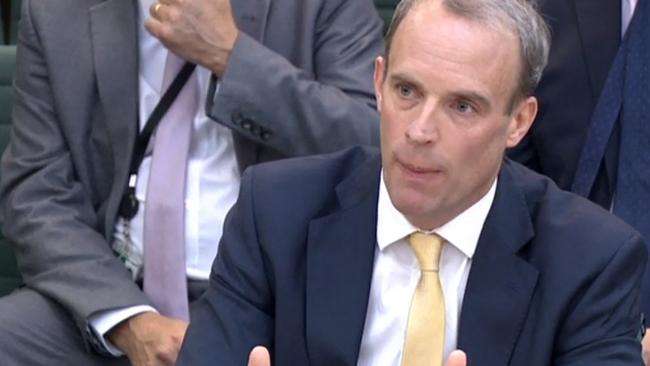Afghanistan: We were caught unawares admits Dominic Raab
UK Foreign Secretary reveals Five Eyes intelligence was that Kabul would not fall this year.

British Foreign Secretary Dominic Raab has revealed that intelligence received by the Five Eyes intelligence group, which includes the United States and Australia, was that there would be a steady deterioration in Afghanistan but that Kabul would not fall this year.
“It was clearly wrong”, Mr Raab said.
The failure by the intelligence agencies to accurately assess the reality of the situation meant that the US and its allies were “surprised” by what ended up as war lord negotiated control by the Taliban across most of the country within weeks.
In a two hour grilling in a Westminster committee meeting
Mr Raab insisted that he remained in control of the situation while on holiday, saying: “Judge us by our results”.
During a two hour grilling in a Westminster committee meeting, Mr Raab said the central assessment was that with a US withdrawal there would be a deterioration on the ground from August and it was unlikely that Kabul would fall this year.
He admitted the pace of the Taliban coup “clearly caught us unawares’’.
Mr Raab was also forced to defend his holiday to Cyprus and tardy return as Kabul was falling, and he revealed he didn’t know how many British citizens or Afghans who are eligible for UK residency still remain behind.
He said: “I engaged in all of the Cobra meetings, I engaged and directed the emergency response team, and engaged with our international partners.” He said that he had been accused of being over inquisitorial but there were other accusations he was either lazy or a control freak.
Mr Raab also came under pressure to explain if the UK told eligible Afghans to come to the airport even though others were told to stay away on the day of the devastating Kabul airport bombing. He said he would investigate those claims.
Mr Raab was also grilled about his discussions with regional partners before and after the Taliban took control with suggestions that he hadn’t built sufficient partnerships with countries like Pakistan, Uzbekistan and Tajikistan.
He rejected claims from opposition parties that he should resign or that the British response should be compared to France or Germany.
”I feel there are lots of lessons to be learned from how we were caught out by the speed and scale of the fall,” he said.
”But I don’t think it is right or accurate to suggest the UK is alone in thinking it would take longer and be more incremental in terms of the deterioration.” He added when pressed: “No, I considered getting on with the job of what has been a Herculean task of getting 17,000 people out and am now focusing on getting out the remaining people.’’




To join the conversation, please log in. Don't have an account? Register
Join the conversation, you are commenting as Logout